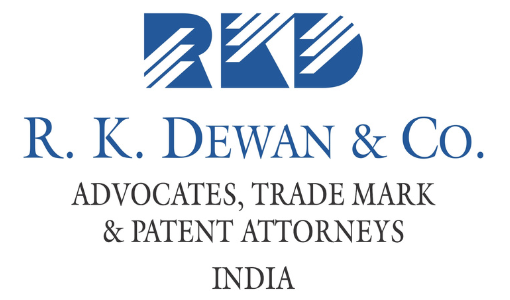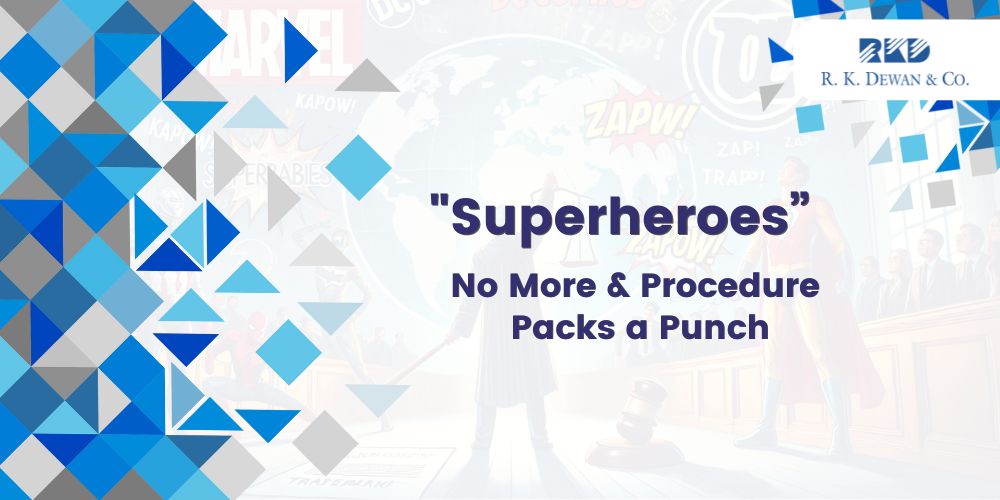Justice Manmohan Singh of the Delhi High Court has remarked in a judgment, “The world is a global village.” This sentiment captures the essence of our interconnected era, where globalization and interconnected markets continually redefine our world. Today, the judgments handed down in courtrooms across the globe can have far-reaching consequences and the ripples of these legal decisions extend far beyond their local jurisdictions, influencing economies and industries worldwide.
Welcome to “A View from Afar,” a series dedicated to examining international judgments and their far-reaching impacts. Through this series, we aim to bridge the gap between diverse legal systems and their global repercussions, offering you a panoramic view of the intricate interplay between law and commerce.
We will delve into landmark rulings from various corners of the world, unpacking the legal reasoning behind such decisions and scrutinizing their practical implications. Each article will provide a thorough analysis, shedding light on how these judgments affect not only the parties directly involved but also affect the regulatory frameworks, corporate strategies, and market dynamics on a global scale.
Whether it is a judgment delivered in any country across the world, we will share our views on its profound impact in other jurisdictions navigating through the labyrinth of international jurisprudence.
Join us in this further instalment of “A View from Afar” as we delve into the decision issued on September 26, 2024, by the United States Patent and Trademark Office Trial & Appeal Board (USPTO), cancelling Marvel and DC Comics’ joint trademark registrations for the word “Superhero.” Marvel and DC, who have co-owned the trademark “SUPERHERO” since 1967, built their vast portfolios of iconic characters—such as Batman, Superman, Spider-Man, and Captain America—around this central concept. The word “Superhero” became synonymous with their brands, representing significant cultural and commercial value.Marvel and DC have actively protected their trademark rights over the years, initiating opposition proceedings against third-party entities attempting to use the word in their branding.
However, this shared ownership faced a direct challenge from Superbabies Limited, a small company producing a comic series about “Superbabies,” for children. On May 14, 2024, Superbabiesfiled a cancellation petition and sought the removal of the mark “Superhero”, on the grounds that,the word ‘Superhero’ had become a generic and descriptive for a genre rather than a distinctive trademark. Superbabies further claimed that widespread use of the word in popular culture had stripped it of any proprietary value. Additionally, Superbabies contended that the trademark’s broad nature stifled competition and restricted innovation within the industry.
However, a critical procedural error allowed Superbabies to gain the upper hand and the case took a significant turn when Marvel and DC’s legal team failed to respond to the USPTO’s request for a counter reply within the required deadline. This procedural misstep led to a default judgment in favour of Superbabies, and ultimately, the cancellation of several key trademark registrations for the word “Superhero.”
The USPTO’s ruling was based primarily on procedural grounds, specifically Marvel and DC’s failure to respond to critical filings. Key aspects of the ruling include:
- Failure to Respond: Marvel and DC were required to file an answer to Superbabies’ petition by July 24, 2024. However, they failed to meet this deadline, effectively waiving their opportunity to contest the claims that the word “Superhero” had become generic& common to trade.
- Motion for Default Judgment: On August 9, 2024, Superbabies filed a motion for default judgment based on Marvel and DC’s non-response. Since no response was filed to oppose the motion, the USPTO had grounds to grant a default judgment in favor of Superbabies since it went uncontested.
- Application of Trademark Rule 2.127(a): This rule allows for default judgment when a party fails to respond to a petition or motion. The USPTO, in adherence to this procedural rule, concluded that Marvel and DC’s inaction warranted a decision in favor of Superbabies.
- Cancellation of Trademark Registrations: As a result of the uncontested default judgment, the USPTO ordered the cancellation of Marvel and DC’s specific “Superhero” trademark registrations, including Nos. 1179067, 1140452, 3674448, and 825835. The Commissioner for Trademarks is expected to execute these cancellations, marking a significant shift in the ownership landscape for this term.
This ruling not only highlights the critical importance of procedural diligence but also serves as a striking reminder of how procedural compliance can make or break a trademark dispute.
The USPTO’s decision in this case has profound &wide-reaching implications for both the comic book industry and trademark law. The immediate impact of this decision is that Marvel and DC’s loss of exclusive rights over the mark “Superhero” opens the door for competitors and other entities, to use the word freely. This could lead to a dilution of the brand identity that Marvel and DC have cultivated around their superhero franchises for decades.
While Superbabies emerged victorious in this matter, it is critical to recognize that this victory is not so much theirs, but a triumph of the USPTO’s rules and procedural safeguards. Marvel and DC may appeal against this ruling, which could potentially reverse the cancellation. An appeal would allow them to present their case on the substantive question of whether their mark “Superhero” has indeed become a generic word. Should they succeed in showing that the term still retains distinctiveness, they could restore their exclusive rights to the mark. The case thus remains an evolving legal battle, with the potential to shape future interpretations of trademark distinctiveness.
From a legal perspective, this case is a stark reminder that even the most powerful brands can suffer major setbacks if procedural rules are not followed. The case also raises important questions about the balance between trademark protection and the risk of a term becoming generic. While Marvel and DC had successfully maintained control over “Superhero” for many years, this case illustrates how even the most iconic trademarks can be vulnerable if they are not actively defended. It also underscores the critical role of legal teams in managing and protecting intellectual property.
An Indian Perspective
In the Indian Trade Law, Sections 47 and 57 of the Trade Marks Act, 1999 provide for the cancellation or rectification of trademarks on various grounds, including non-use and procedural lapses. If a registered proprietor fails to respond to legal challenges such as a cancellation petition such a, procedural lapse could potentially result in the cancellation of a trademark in India, reinforcing the importance of timely responses and procedural compliance.
Similarly, Section 21 of the Act,governs the opposition proceedings, mandating that an applicant must respond to an opposition within a prescribed timeframe (i.e. within two months from the date of receipt of the Notice of Opposition served by the Trade Marks Registry). Failure to do so can result in the abandonment of the application or an adverse decision.
Under the Indian Trade Marks Rules, 2017, procedural aspects such as opposition to registration, replies to examination reports, and other actions must be adhered to within prescribed timelines. If parties fail to respond to show cause notices, oppositions, or cancellation petitions, the Trade Marks Registry can initiate actions such as deeming the opposition as unopposed or cancelling the registration.Rule 45(1) of the Trade Marks Rules, 2017 provides that if the applicant for registration fails to file a counterstatement to an opposition within the stipulated period, the application is treated as abandoned. The principle of default judgment, as applied in the USPTO decision, aligns with this rule in India, where failure to engage with the procedural process results in significant consequences.
Just like the Marvel-DC case, had such procedural oversight occurred in India, the consequences would be equally severe, with the possibility of the cancellation of a trademark simply due to non-compliance with statutory timelines.
This decision and the facts surrounding this case, prompted me to analyse the key takeaways for Companies, Start-ups, Attorneys and other registered proprietors:
- Timely Compliance with Procedural Deadlines: The most critical lesson from this case is the importance of adhering to procedural deadlines. Missing a deadline to file an answer, respond to discovery, or submit a motion can have catastrophic consequences. Trademark owners and their legal teams must implement robust tracking systems to ensure all deadlines are met.
- Active Trademark Management: Trademark owners must consistently monitor and enforce their trademark rights to prevent them from being diluted. Conducting active due diligence & periodic investigations are important.
- Procedural Diligence in Legal Representation: Even the strongest substantive arguments can be rendered irrelevant if procedural rules are not followed. Legal practitioners must maintain constant vigilance regarding procedural requirements, ensuring that all filings and responses are submitted in a timely manner to ensure the best possible outcome for their clients.


